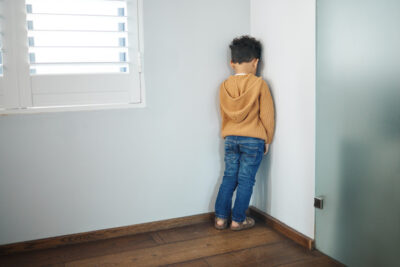My Child Has Behavioural Problems… Could it be Oppositional Defiant Disorder?
Tantrums, arguments, insistence on being right, and not following directions can all be a part of normal childhood development, so how can we tell if these behaviours are part of a mental health disorder like Oppositional Defiant Disorder (ODD)?
ODD is a behavioural disorder that typically develops during the early primary school years and features symptoms across three clusters:
- Angry or irritable mood
- Argumentative or defiant behaviour
- Vindictiveness
Frequency, Intensity, Duration
What separates ODD from normal childhood development is the frequency (how often), intensity (how much of an impact), and duration (how long) the behaviours are demonstrated. For younger children aged 4 to 6, this could look like an irritable and angry mood, arguing with their parents, deliberately seeking to annoy others and refusing to comply with rules on a daily basis. For older children aged 7 to 12, symptoms may be observed several times in one week, but not necessarily daily. A pattern of behaviour that persists for a minimum of six months is required for diagnosis.
Parents find that these behavioural symptoms have a significant impact on daily functioning. Lets look at a fictional case example.
Clarence is a seven year old boy who has just commenced grade 2. His parents, Amy and Mark, have had concerns about Clarence’s behaviour since age four. They noticed he did not cope well with making mistakes, lied or blamed others when he did the wrong thing, and had difficulties playing with his peers during day care and kindergarten.
Clarence wakes up most mornings and immediately begins a highly-preferred activity, such as playing Lego. When it is time to get ready for school, Clarence ignores his parent’s requests. If Amy or Mark try to take the Lego from him he yells and screams, throws his shoes, and breaks his Lego creations that he had spent time building. Clarence tells his parents that they made him angry and it was their fault that he broke his Lego. Getting Clarence ready for school can take over an hour on most days. On other days, Clarence will make ‘deals’ with his parents in exchange for his cooperation which might include fast-food on the way to school or a new toy. These arguments also occur when Clarence is asked to do something that is not a preferred/enjoyable task, such as tidy up or do homework. He often shouts “No!” or “You do it!” and runs away.
Clarence likes school because he likes his teacher and a teacher aide who spends a lot of time with him during the school day. He particularly likes to have a position of responsibility, doing ‘special jobs’ for his teacher, distributing books to other students, filling up water bottles, or cleaning the whiteboard. Clarence has a hard time with academic work and quickly disengages once things become too difficult or he perceives he has made a mistake. When his teacher insists that he continue working, Clarence will refuse, rip up his book, throw his pencils away, and may try to run out of the classroom. Clarence’s relationship with his peers is less positive, and he struggles to develop and maintain friendships.
Amy and Mark have tried several parenting approaches to support Clarence to meet their expectations. They feel as though ‘nothing works’, and following advice from family and friends, have become increasingly focused on punishment in an attempt to manage Clarence’s behaviour. They confiscate his iPad and preferred belongings, and cancel enjoyable events such as attending peer’s birthday parties. Since increasing punitive responses to Clarence’s behaviour, his irritable mood and defiance have increased in frequency and intensity. They are also receiving pressure from Clarence’s school to seek further help, as his behaviour has led to several suspensions and the Principal has suggested that Clarence may not be able to continue his enrolment should things not improve.
This case study raises questions which we will now explore:
Q. What factors could influence Clarence developing these types of challenging behaviours?
A. A combination of biological factors and genetics can make it more or less likely that a child will develop ODD. High emotional reactivity and low frustration tolerance are two temperamental traits that predict a greater risk of developing ODD.
The child’s environment and experiences, including peer interactions and parenting styles, can either exacerbate or inhibit the child’s genetic/biological predisposition towards the development of ODD. Children who have had significant changes to caregivers in early life, experience early-life trauma, or are subjected to harsh parenting practices are at increased risk of developing ODD.
Q. Could it be ADHD instead of ODD?
A. ADHD involves difficulties with impulse-control, sustaining attention and hyperactivity. Defiance towards authority figures, vindictiveness and frequent irritable/angry mood are not primary symptoms of ADHD. Where a child has a diagnosis of ADHD and also meets diagnostic criteria for ODD, both diagnoses should be given. Children who have ADHD are more likely to also have ODD, in comparison to children who do not have ADHD.
Q. So if punitive behaviour management strategies are not effective, what is effective?
A. Parents, typically working with a psychologist or behaviour specialist, can learn about strategies based on attachment theory and positive-behaviour support principles. These strategies promote positive interactions between parent and child and place the parent-child relationship at the forefront of managing the difficult behaviours.
Each behaviour is examined in the context of the environment in which it occurs, and a hypothesis can be developed about what function the behaviour is serving for the child. Once we understand the functional nature of the challenging behaviours, the child can be taught alternative and more appropriate behaviours which obtain the same or similar outcome. That is, they are functionally equivalent.
Q. How can a psychologist help?
A. There are three main approaches to therapy that can help children with ODD. A combination of these approaches is often needed.
- Parent Training involves the development of skills and a consistent approach to developing positive behavioural choices for your child, based on attachment theory and positive behaviour support. It includes parent education and skill-building, behavioural data collection, skills training, role-play and regular de-briefing.
- Individual Therapy using an evidence-based intervention such as Cognitive-Behavioural Therapy can be provided to the child to improve mood, cope with frustration and other negative emotions, and build skills to manage difficult situations.
- Family-Systems Therapy involves assessing the underlying family dynamics that may be contributing to the child’s behaviour and making modifications at the family level to foster healthy communication, create a safe and calm environment, and improve relationships between family members.
When seeking help, it is typically best for parents to attend the initial appointment without the child, to have a candid discussion of the child’s behaviours and difficulties. Subsequent sessions may involve working solely with the parent/s, with the child, or a combination of both. In my own work, most of the time is spent working with parents on their responses to the child’s behaviour, as this tends to have the greatest impact on improving the child’s behaviour.
References
American Psychiatric Association. (2013). Diagnostic and statistical manual of mental disorders (5th ed.).
Johns Hopkins Medicine. (2022, April 26). Oppositional defiant disorder (ODD) in children.
Child Mind Institute. (2023, February 14). What is ODD or oppositional defiant disorder?
Cleveland Clinic. (2022, March 23). Oppositional defiant disorder (ODD): Symptoms & treatment.
 Author: Alister Ballschmieter (B Psychology (Hons))
Author: Alister Ballschmieter (B Psychology (Hons))
Alister sees children of all ages. If you think your child could have ODD and would like to seek professional help to fix the issue, don’t hesitate to make an appointment. You can try Online Booking, or call Vision Psychology Wishart on (07) 3088 5422.

